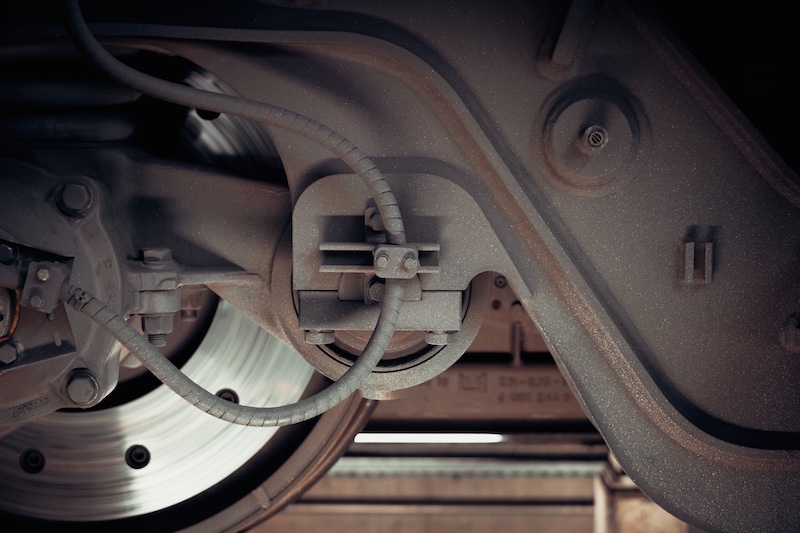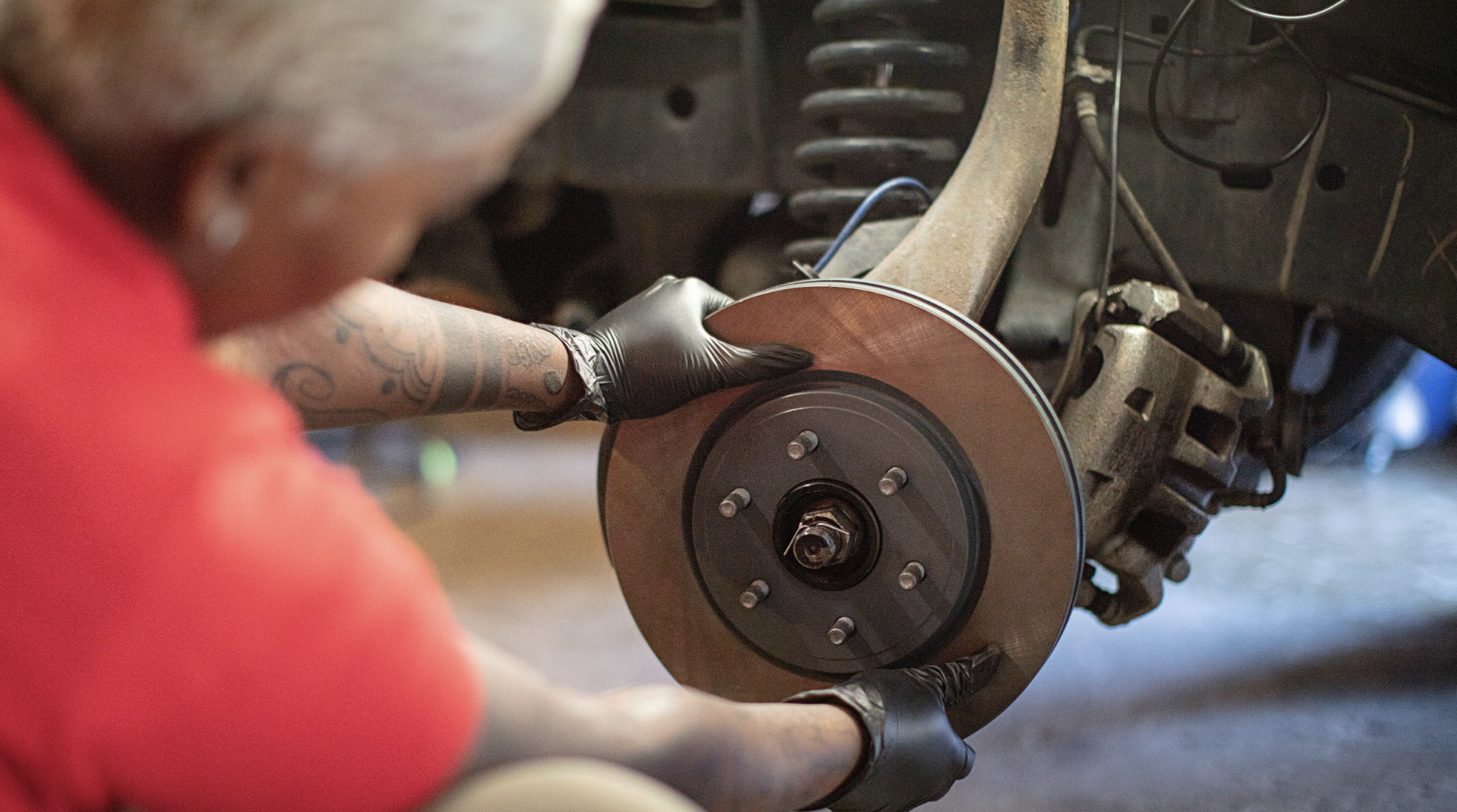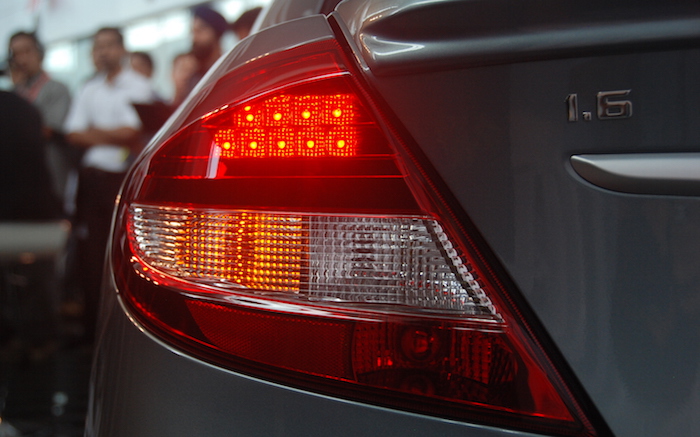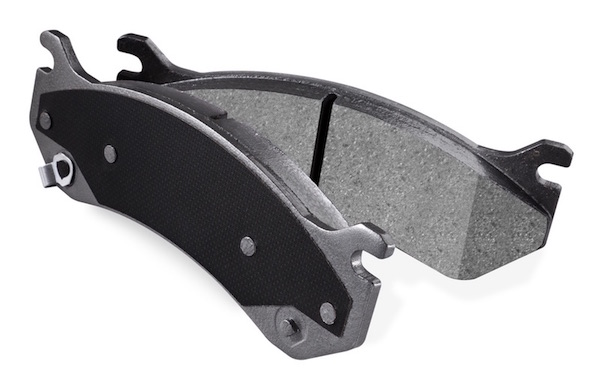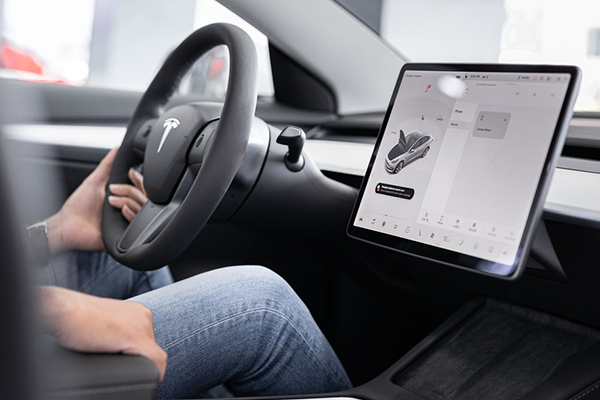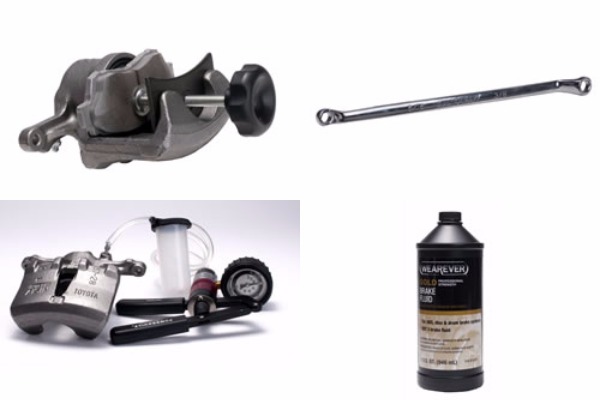Every part of your brake system is critical, and one that might need replacing someday is the brake caliper. Here's a look at this neat piece of engineering and everything it does. Read on to learn:
- Why they're essential for stopping
- Common signs of failure
- Different kinds of brake calipers available
- Estimated cost to replace
This is everything you need to know about brake calipers on Dodge Calibers (and other cars that don't rhyme).

Wheel | sagesolar
What is a Brake Caliper?
A brake caliper is a crucial piece of a vehicle's braking system. Most modern vehicles have a caliper at each wheel, sitting on top of the brake rotor. The caliper's specific task is to press the pads into contact with the rotor in order to slow down the spin of the wheel — in turn slowing or stopping your vehicle. Brake calipers are massively important for stopping, as failure will cause severely reduced stopping ability.
Wondering about the name? It seems the word is 500-year-old shorthand from a “calliper compas," a French device for measuring diameters, primarily for early guns. Since brake calipers (and gun “calibres") need high tolerances in order to work, a caliper (the measuring device) was used on early car brake calipers to make sure everything fit together properly, and the name stuck.
How Does a Brake Caliper Work?
When you step on the brake pedal, a few things have to happen in order for your vehicle to slow down. Let's take a simplified look at how the caliper works as part of the brake system.
Your brake pedal looks the way it does because it is a mechanical lever that, when depressed, increases the force applied at the brake booster. Stepping on the pedal creates enough force to shove a piston into the brake fluid in the master cylinder. This fluid can't compress, so it flows under pressure through the brake lines to the calipers. The pressurized brake fluid pushes a small piston (sometimes a few pistons) inside the caliper, forcing it to move the brake pad into contact with the flat surface of the brake rotor.
The brake rotor is spinning with the wheel, effectively bolted to it. Both the brake pad and rotor are designed for maximum friction. This friction slows the rotor as it turns kinetic energy into heat, in turn causing the wheel to slow its spin, thus slowing the vehicle.
What are the Symptoms of a Bad Brake Caliper?
Signs of brake problems are annoying and stressful, as you might not know which part of your vehicle is going bad. If you notice any of these distinctive symptoms, it could be a sign your brake caliper needs replacing.
- Car pulling to one side as you brake
- Uneven pad wear on one side of the caliper vs the other
- Metal on metal noises, grinding or squealing (louder than the common brake pad squeal)
- Brake fluid leaking from the wheel area
- Poor braking performance
- “Dragging brakes," feeling like you are driving with a foot on the brake pedal

Pressing the brakes | Getty
What Causes Brake Calipers to Go Bad?
Like any automotive part, things wear out with use. The repeated movement of the piston, the corrosive brake fluid and the high exposure to grime due to location means that, eventually, your brake calipers will wear out.
In modern vehicles, it's not unusual for brake calipers to last 100,000 miles or 10 years, maybe even longer. But failures do happen. When your calipers are replaced, you have some satisfaction from knowing they are likely good for the next decade.
How Much Does it Cost to Replace Brake Calipers?
The cost of brake calipers can be all over the place, but trend towards the affordable side of auto maintenance. The Advance catalog has many brake calipers well under $100 and even some under $30 after core charge. The core charge is like a deposit that you have to pay until you bring your old parts back for rebuilding. A $50 caliper with a $30 core charge is $80 at the register, but you get the $30 back once the work is done and you hand over the old part.
This price variance is due to several factors.
- Vehicle brand and class have a lot to do with brake caliper cost, as luxury cars and heavy-duty trucks typically have larger or more complicated (and thus more expensive) parts. The same is true of sports cars, which can have as many as six pistons in one caliper.
- Then there's the caliper and piston material. Calipers can be cheap and durable steel, or high-end billet aluminum, while pistons can be plastic, steel or aluminum.
- Finally, floating or fixed calipers can also determine cost. An average sedan has a simple, single-piston caliper with a “floating" design, which moves slightly as the single piston pushes the brake pads together. A high-end sports car might have a fixed 6-piston caliper design for better brake pedal feel, performance and durability.
Mechanic aggregate site RepairPal states brake caliper replacement labor costs are between $132 and $166 in 2021.
You can visually confirm what kind of brake caliper you have simply by looking between the spokes of the wheel. A floating caliper is surrounded by a bracket, while arches or bulging outlines in the caliper shell tell you how many pistons it has. For example, a floating 2-piston caliper has a bracket and two arches, while a fixed 4-piston caliper has no surrounding bracket, but has two piston outlines on each side of the caliper.
What Happens if You Drive with a Bad Brake Caliper?
If you think your brake calipers are failing, get the issue corrected as soon as possible. This is a serious problem that could lead to brake failure, putting you and others at risk. A failing brake caliper can cause damage to other brake components even if you don't crash, so this problem just gets more expensive the longer you wait.
At a minimum, you'll notice the embarrassing noises mentioned above as your braking system starts to fall apart. If we haven't made this clear yet: do not drive with a failing brake caliper. Replacing a brake caliper yourself is a rather straightforward task, or a qualified professional can make quick work of it, keeping the labor rate low.
The big takeaway here is to get it checked out if you suspect brake caliper problems. Did you have your calipers serviced, replace them yourself or rebuild them? Let us know your tips and suggestions in the comments below.

